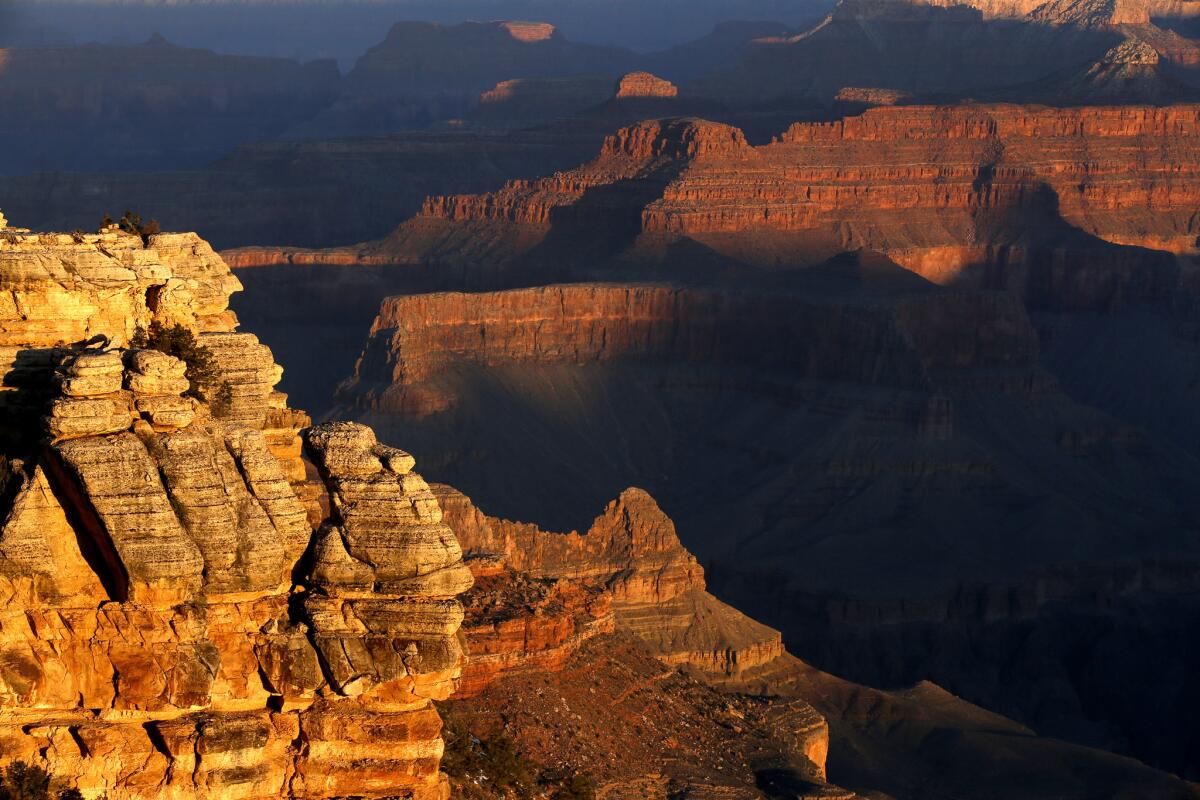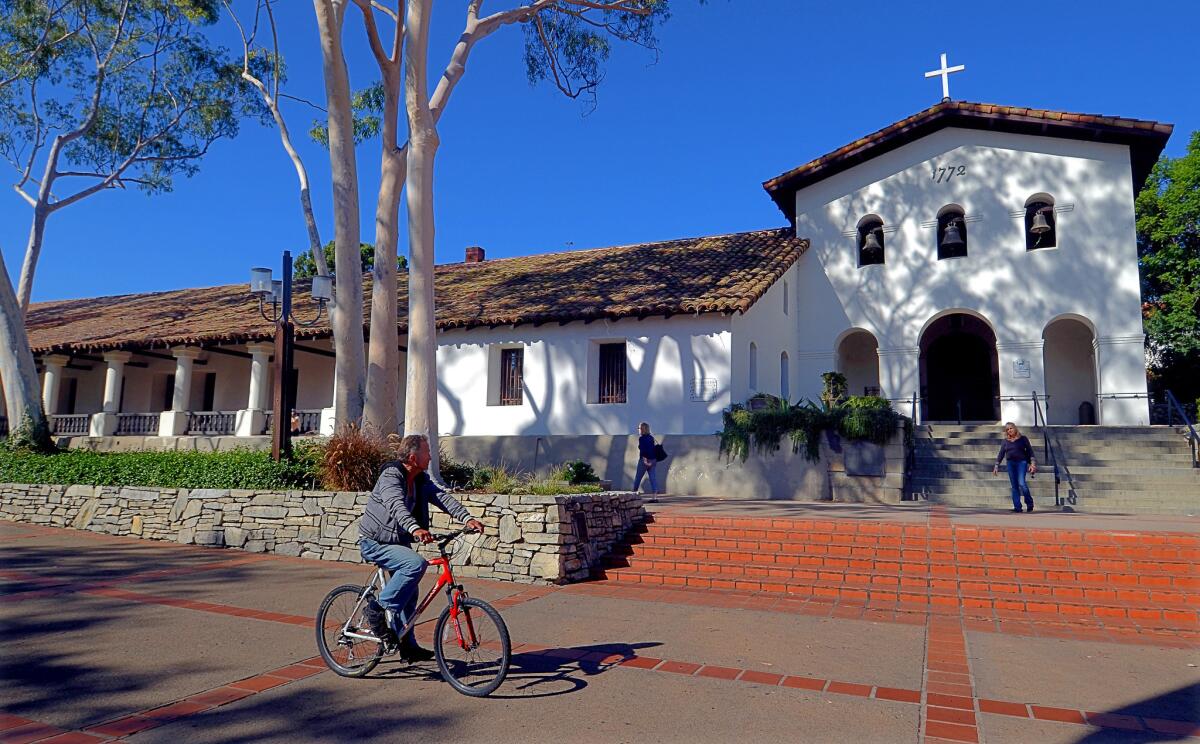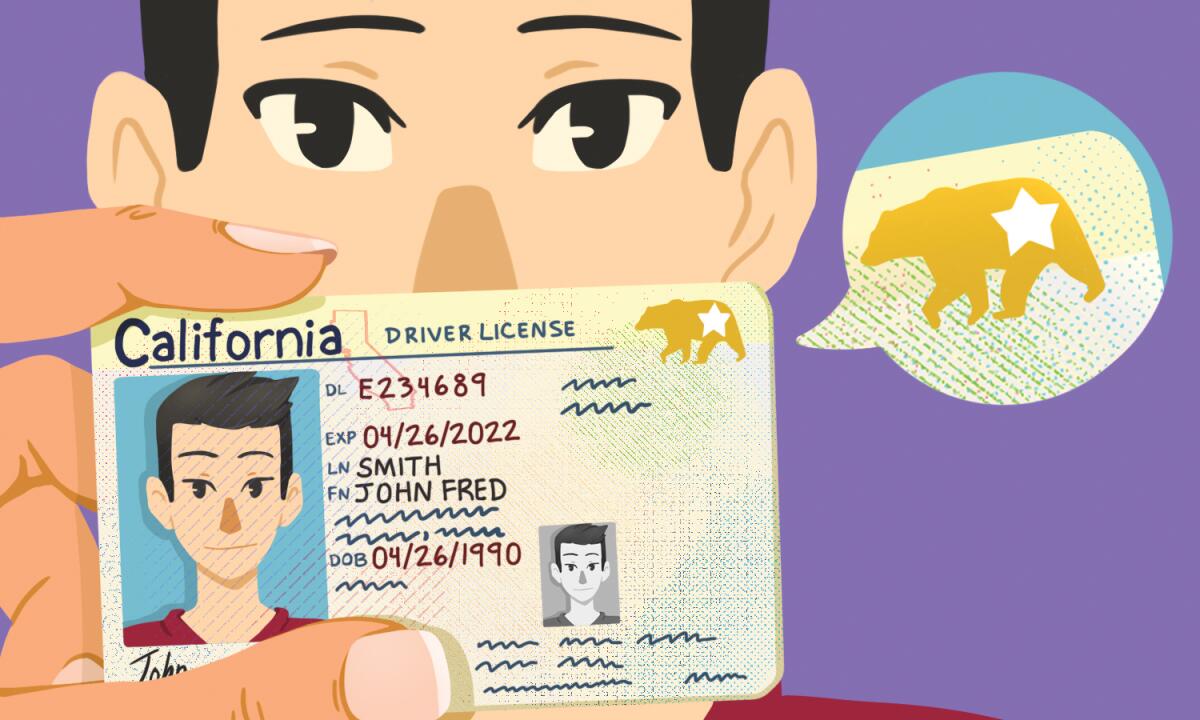Escapes: Honestly, is there anything grander than this?

Writer Edmund Vallance and his wife first visited the Grand Canyon about 10 years ago. He and his pregnant spouse played it safe and didn’t do a strenuous hike in the summer heat. “It was a frustrating experience — a bit like peering through the gates of Eden,” he said.
Like many people, he returned and brings you a canyon-sized report about what may be America’s most amazing display of grandeur.
We have other big news too: a new kid in town; the increasing worry that many fliers won’t be ready for an Oct. 1, 2020, deadline; ideas on how to make your vacation stretch even farther and how to save on travel insurance; and why a destination in the Sierra foothills may give you déjà vu. All this and an End Paper that reflects on the wisdom of an ex-flight attendant. And we’re off!
Grand doesn’t begin to describe it
Edmund Vallance is British but has lived in the U.S. a dozen years. Even so, he said, he sometimes felt like an impostor writing about the Grand Canyon. “It didn’t seem to matter, though,” he said in an email. “The Grand Canyon has international appeal. I wouldn’t be at all surprised if aliens were currently admiring it from the comfort of a souped-up spaceship.” You don’t need a spaceship to see it, but “100 Things You’ll Want to Know About the Grand Canyon” can point you to new ways to discover this magnificent work of Mother Nature’s art.
The land of awwws
Congratulations on a new addition to the family! This 6½-foot-tall, 138-pound newborn, a Masai giraffe, is the new kid on the block at the L.A. Zoo, Mary Forgione writes. These animals are endangered, having lost half their population in the last 30 years. Learn why this girl may not spend her whole life at the zoo.
You thought your flight was long?
Writing for Bloomberg, Angus Whitley describes his 20-hour flight from New York to Sydney, Australia. He was part of a test group of flight attendants and reporters who took what Qantas hopes will be a regular route one day. The first challenge: immediately switching to Sydney time, which meant staying awake when his body really wanted to be in dreamland.
All aboard for Santa and cinema
Attention, train lovers: You can take a ride on the Polar Express and marvel at the Hollywood connections of Jamestown, Calif., on this weekend escape in the Sierra foothills. You can do weekend rail rides from April to October, but starting Nov. 29, Santa takes center stage, Mike Morris writes.
Savings in the sky
If you’ve wanted to see, say, Singapore, which is on the way to somewhere else you’re going, you can do it for almost nothing or sometimes even free, George Hobica writes in our Money Matters column this week. These stopover fares are available on various airlines in cities around the world.
Savings on travel insurance
Mary Forgione asks this important question in helping you evaluate your travel insurance needs: Are you paying too much? She answers with advice that helps ensure you’re covered when you need it most.
Savings on the Central Coast
If you’re headed to San Luis Obispo, here’s a way to save on your hotel and on Uber rides, Forgione writes. The new Hotel San Luis Obispo is offering a 10% discount on rooms, and the local chamber is offering credit for as much as $100 worth of Uber trips.

A Vegas taxi, a better deal
If you jump in a cab destined for your Strip hotel, your fare won’t come as a surprise, Jay Jones writes. A new flat-fare structure will start at $19 from the Las Vegas airport.
A real problem
Here are the alarming results of a U.S. Travel Assn. survey: Nearly three-quarters of Americans don’t have Real ID driver’s licenses or don’t know whether they have one. Starting Oct. 1, 2020, you will need this federally compliant license or another form of identification, such as a passport or a passport card, to board a domestic flight. My On the Spot column explains more about the task of communicating this change to the public and where to turn if you’re still without one. (Note: You don’t need one to drive, and other forms of ID can work to fly, the story explains.) Based on the numbers above, it’s a long climb to getting this word out by the Oct. 1 deadline, when, the travel association fears, 80,000 people may be denied boarding.

Honors for Times Travel
Greetings from El Paso, Texas, where I am attending (but will be back by the time you read this) the Society of American Travel Writers convention. This group of writers, photographers and media relations people gather annually to compare notes, swap stories, learn new skills and honor good work. The Los Angeles Times Travel section was awarded silver in the “best newspaper travel section” category. The Washington Post received gold; the New York Times, bronze; and the Minneapolis Star-Tribune, an honorable mention. We’re honored to be part of this crowd but our biggest reward is serving our readers. Thank you for urging us onward with your emails (travel@latimes.com) that ask great questions, offer suggestions and give us different perspectives. We cannot do any of this without you.
What we’re reading
As a big fan of barbecue, thanks to years of working in and living near Kansas City, Mo., I was fascinated by Smithsonian magazine’s take on a new joint in Houston called Blood Bros Barbecue in Brett Martin’s “How Three Guys From Houston Are Cooking Up a Revolution in Texas Barbecue.” It’s about barbecue (mouth still watering) and friendship, Houston and the strength that comes from diversity.
Who doesn’t love a love song, especially when it’s being sung by a half-pound creature? This AFP article (I found this, courtesy of Quartz, in the Straits Times) tells this tale of the white bellbird, whose song in pursuit of love is so loud that you might as well be standing next to a pile driver. The male’s ardent love song is “above the human pain threshold and equivalent to a loud rock concert or a turbo-prop plane 200 feet away achieving liftoff power.” I’ll dub this bird “The Little Engine That Could … Damage Your Hearing.”
Do you remember Steven Slater, the Jet Blue flight attendant who’d had enough and quit, punctuating his resignation by whistling down the emergency exit slide? It was the talk of the trade in 2010, but the Slater uproar eventually faded away, as do most news nuggets. FlyerTalk caught up with him after it was reported he had disappeared in Mexico (he hadn’t) and catches up a bit on his life and his philosophy in this age of flying.
What you’ll want to read
The Los Angeles Times, of course. This newsletter rounds up the best of Travel, but it’s not everything we use in print or online. If you’re a travel fan and curious about the world (and you are because you’re a traveler), you’ll find news and inspiration. Plus you’ll be supporting an institution that writes and reports with you in mind. You can find the details at our special offers page. We thank you.
Maybe you had a dental appointment or one of the kids got sick and you didn’t have time to read The Times and have FOMO — fear of missing out. That’s where our newsletters come in. Besides Travel, you can catch up with these compendiums of information, delivered to your inbox. To peruse other newsletters, go to our newsletter page.
Finally, tell us what you think — about the newsletter, the world, the Travel section and whether the Nats can actually take the World Series or anything else on your mind. Write to us at travel@latimes.com. We look forward to hearing from you, and we’re not making that up.
End paper
You may disagree with the way Steven Slater (see above in What We’re Reading) quit his job — leaving a job can be dramatic, but it doesn’t necessarily have to be a stage play — but it’s hard to argue with his take on flying.
“By transitioning from a service culture based on human interaction to a business model structured around transactional processes, the airlines have sunk their own ship,” he told FlyerTalk, saying that bad flier behavior was created in “this vacuum of neglect.” He notes that a first-rate (and probably first-class) wine-and-dine trip means nothing without the human touch, but flying on a cramped, ultra-low-cost carrier can be rewarding as long as there is human interaction with the people who serve you.
I thought about my most recent flights early Sunday morning. Did the flight attendants do anything more than serve me a glass of water and pick up my “service items”? What did I owe them as I deplaned? Perhaps my life. Flight attendants’ main job is to keep us safe, not to serve us pretzels for breakfast.
Slater notes it’s a two-way street: A passenger’s responsibility is to say thank you; a flight attendant’s is to make a customer feel like more than a seat in a seat.
I did say thank you as I deplaned both flights. I admit it was a little forced, but you know what? I felt better afterward. Maybe the flight attendant did too. And that’s another important life lesson: We also get when we give.
Wherever you are, travel safely and well (enhanced, perhaps, by what others do for you and what you do for others), and remember that we will be here to welcome you home.
More to Read
Sign up for The Wild
We’ll help you find the best places to hike, bike and run, as well as the perfect silent spots for meditation and yoga.
You may occasionally receive promotional content from the Los Angeles Times.







